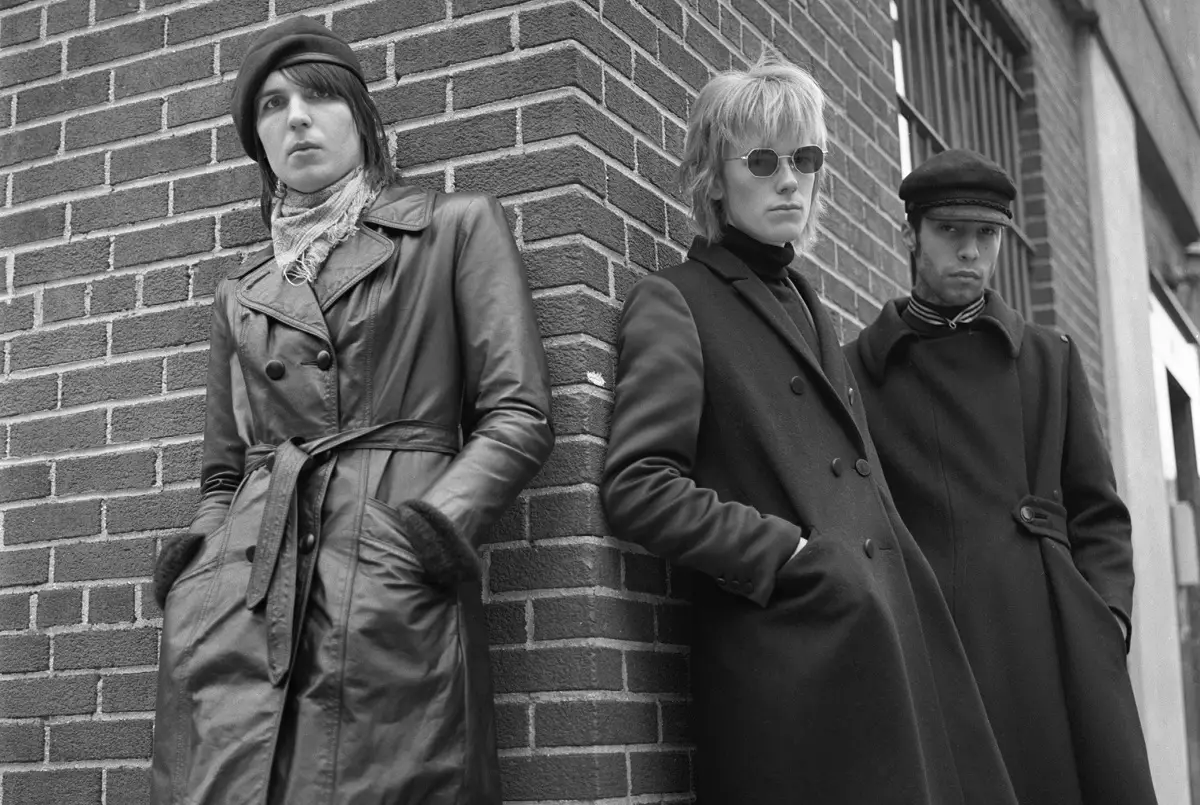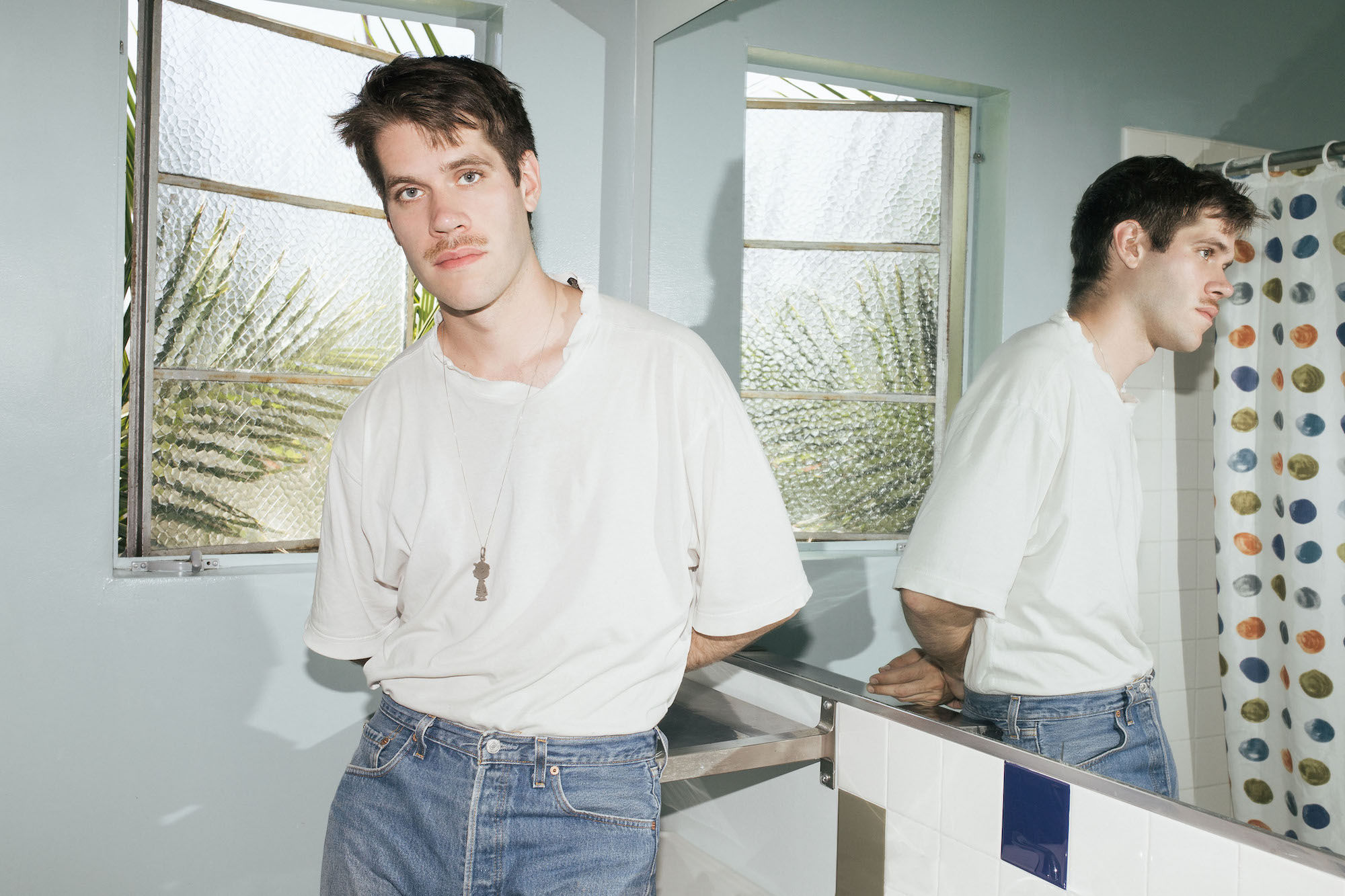Inspired by experiences with plant medicine, Christopher Henry’s new album ‘HeartSpaces’ delivers an exciting message of hope and love put to music.
by guest writer Mike Fiorito
Stream: ‘HeartSpaces’ – Christopher Henry
Christopher Henry is an accomplished musician and educator renowned for his diverse talents as a singer, songwriter, multi-instrumentalist, and mandolinist. Additionally, he is a valued member of the esteemed Peter Rowan Bluegrass Band. The Peter Rowan Bluegrass Band album Calling You From My Mountain was nominated in 2023 for a Grammy Award for Best Bluegrass Album of the Year. Christopher Henry has been honored by the International Bluegrass Music Association with nominations for Song of the Year, Mandolin Player of the Year, and Instrumental Album of the year.
Henry began playing the mandolin at a young age and has since mastered multiple instruments including banjo, guitar, bass, ukulele, fiddle. He is also an excellent singer. Henry is highly regarded as a mentor to many aspiring musicians and is known for his emphasis on teaching by ear rather than using written materials. Henry’s teaching style focuses on precise instruction, teaching note-for-note and pick-stroke by pick-stroke.
Wyatt Ellis, a prodigious talent who began studying under Christopher Henry a few years ago at the age of fourteen, stands as one of Henry’s notable protégés. Thriving under his teacher’s guidance, Wyatt’s skill on the mandolin was showcased when he filled in for Henry during a remarkable performance at the 2022 International Bluegrass Music Awards.
While Henry’s origins are in roots music, he has spent many years working in hip-hop and managed a recording studio and record label serving urban artists doing pop, R&B, and dance music. In his late teens, Henry played drums in a punk rock band as well as a good bit of metal guitar. He may be the only person in the world who has played for Bill Monroe at the Grand Ole Opry AND collaborated with Wu-Tang Clan’s Raekwon.
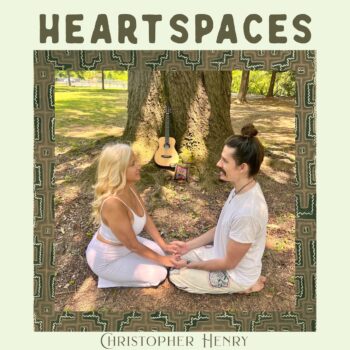
Henry’s latest album, HeartSpaces, released on June 21st, showcases his deep interest in South American music, particularly traditional Peruvian healing and medicine songs.
The album reflects his extensive study of wisdom traditions and his experiences working with medicine plants in Peru under the guidance of a curandero (healer). The songs on HeartSpaces offer catchy melodies while conveying profound statements about reality and exploring themes of humility, healing, kindness, and compassion. Henry describes the genre of the album as “Shamanic Gospel,” while his wife, Brooke Carlson Henry, calls it “Jungle Grass.”
Henry has been going to Peru, with Brooke, under the tutelage of Papa Gilberto Mahua, their curandero, to better understand the plant medicine world as part of his spiritual quest. Henry wrote to me saying, “our teacher, Papa Gilberto Mahua, is a legend in the plant medicine world. He is the youngest brother of many well-known curanderos. I recall hearing a couple of Papa Gilberto Mahua’s grandparents were at the highest level of the tradition called a Meraya and may have had the legendary ability to be able to shapeshift. I wanted to do as good a job as I could for many reasons, but perhaps most to honor the spirits of the plants and trees that have given me so much healing.”
Brooke sings on three of the tunes: “NoyaRao Niwebo, “The Mountain Song,” and “Heart Spaces.” On “Hallelujah Chorus and the Old-Time Tune,” Henry’s mom, Murphy Hicks Henry, plays banjo and sings, accompanied by his dad, Red Henry, playing mandolin and singing, along with Marshall Wilborn on bass. Henry plays all the other instruments and provides additional harmonies on the rest of the album. Each song on HeartSpaces has its own unique character, yet they come together to create a cohesive album.
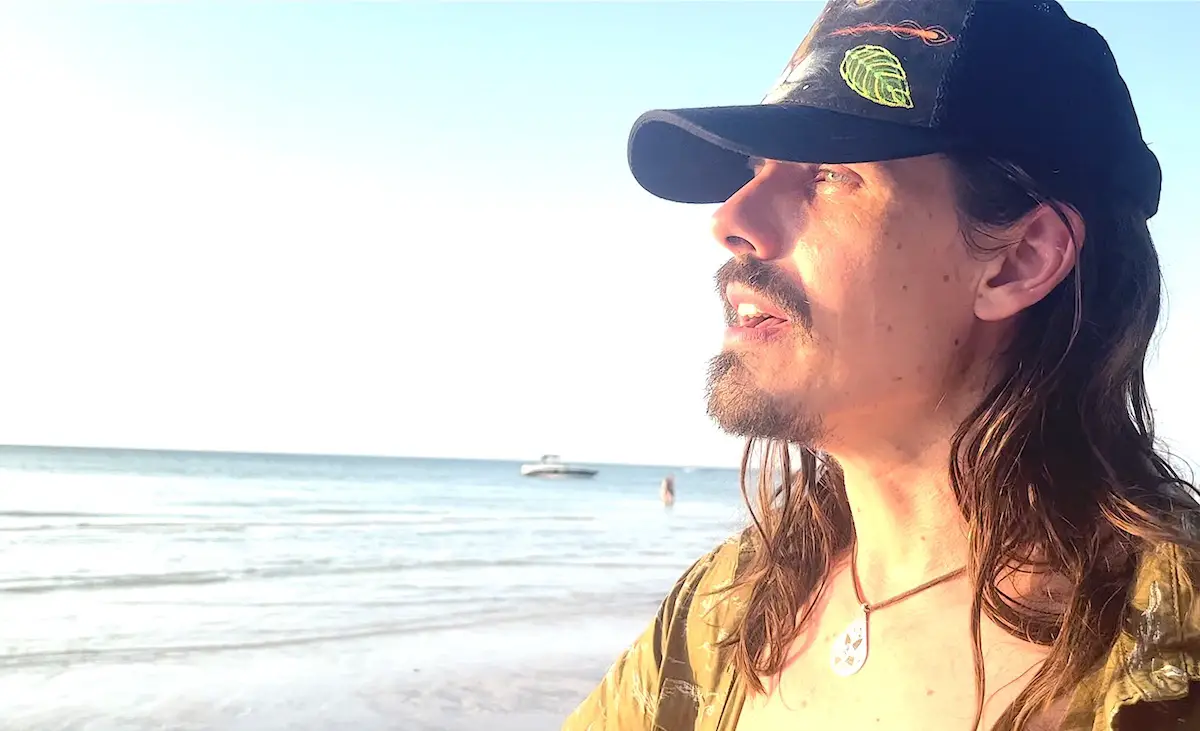
HeartSpaces opens with “El Caballo de Viento,” sung in Spanish and English. In this tune, Henry employs a Peruvian rhythm, Peruvian style guitar playing and percussion. The song doesn’t try to sound Peruvian; we never forget that we’re listening to Christopher Henry. “El Caballo de Viento” means “The Wind Horse” in English. It is about learning to train the fury that resides in each of us. That fury, if not tamed, can rage through us, rending us to pieces, is my interpretation. Or we can learn to harness the fury within and direct that energy towards more productive purposes, and even temper our passions to become better human beings. It’s significant to know that, when singing with the Peter Rowan Bluegrass Band, Henry often sings the high tenor part while Peter sings lead and lower baritone. On “El Caballo de Viento” Henry showcases his vast vocal dynamics, singing across the vocal spectrum, even hitting low baritone notes.
“At first, I was thinking I would put a bunch of bluegrass instruments behind the songs, but it wasn’t long before I realized that was not what the songs wanted,” Henry says of ‘El Caballo de Viento.’ “So, then I thought the album would basically be just guitar and vocal. But after coming back from my last diet, I started tracking one of the songs Chiri taught me, now my first released recording in Spanish, “El Caballo de Viento.” I put some guitar backup on it, and then some more Latin inspired accompaniment with the bass, shakers, shakapa, and a hand drum. Brooke liked it so I started using some of those vibes on other tracks and that ended up being the vibe for a lot of the album.”
On “NoyaRao Niwebo,” the second song on the album, Henry sings in both English and Shipibo, the language of the indigenous people along the Ucayali River in the Amazon rainforest in Peru.
Rama kano abanon (now I open the visions/connections/structures)
Bewa ban Bewa ban (sacred songs forever)
Nocon pae kanobo (my mareacion structures/visions connecting)
Shinan nichin shamanan (centering the mind excellently)
Henry comments that “one of the big lifts to the whole process was getting Brooke involved with the singing. It was her first serious recording experience, and she worked really hard learning the very challenging harmony lines in English and Shipibo. I am so proud of her and how all that turned out.”
The Ayahuasca Foundation Blog explains that ‘NoyaRao’ means “Flying Medicine.” It is known as the flying tree, or in Spanish, “Palo Valador.” In the Shipibo tradition, it has been said that NoyaRao is the pinnacle of master plants, and the plant spirit is second only to God. “A long time ago there was a Shipibo community near Pucallpa, that lived around a NoyaRao tree. One day, as happens in the Amazon, the rivers began to flood, and the community was trapped. It was said that the NoyaRao tree, aware of the ultimate demise, began to uproot itself carrying all the land, huts, and people with it and flew them to all safety or possibly another dimension.”
“With ‘NoyaRao Niwebo,’ I just want to get it perfect,” Henry says.
”I ended up with so many vocal takes all stitched together with what I thought were the best parts of all of them, but it just didn’t have the continuity of reality. Brooke really helped me realize that wasn’t the way to go. I started working with many fewer takes, ending up with three main takes that she was there for. It might not have ended up as perfect pitch wise as I would have liked, but it has the continuity and captures the real moments of us there together. I literally woke up from sleeping a few weeks after finishing my second NoyaRao diet with three parts of a song coming through really strongly. I had a melody come from waking up after a diet before with Camalonga, but I thought this one coming through was a country song. I recorded the form and got some communication from a diet friend who sent me a starter guide to learning how to sing/chant to the diets in Shipibo. I started working with some of those phrases and before too long, I realized that the whole song was coming from NoyaRao.”
In Shipibo and other traditions, the dieta, or diet is a practice that invites the spirit of a plant to merge with your body and spirit, and ultimately become a teacher and help you develop the power and knowledge to heal others. Dieting a plant involves fasting both food and water for a certain amount of time, eating a simple bland diet and being removed from all stimulation so you can meditate and concentrate on the plant spirit and build an authentic relationship with it. This can take a long time and can be very subtle but, in the long run, the experience can be remarkably life changing. It is very important you are aware, prepared, and ready for what you will face. Like a raging forest fire, sometimes everything will need to be destroyed before new life can spawn out of the ashes. (Ayahuasca Foundation Blog)
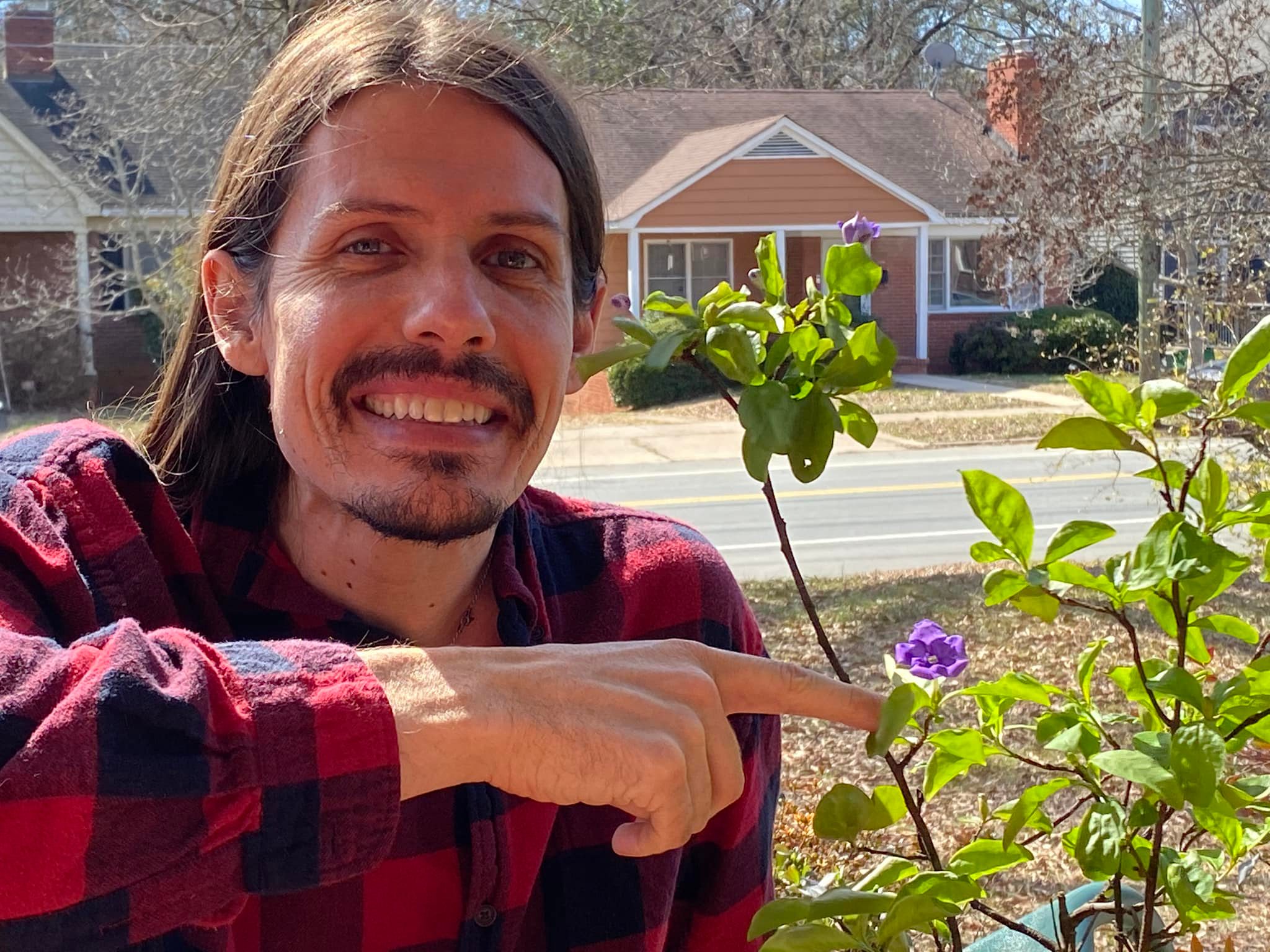
Another important aspect of the dieta is the icaro, which is a song that is whispered, whistled and sung by the curandero, or shaman. The word icaro is believed to derive from the Quechua verb ikaray, which means “to blow smoke in order to heal.” As scholar Stephan Beyer wrote “the icaro is given to the shaman by the spirits of the plants and animals, and the shaman uses it to call the spirits for healing, protection…to control the visions of another person who has drunk ayahuasca, to call the spirits of dead shamans, control the weather, ward off snakes, or visit distant planets.” (Singing to the Planets, Stephan Beyer, 2010)
As one mestizo shaman said, “you cannot enter the world of spirits while remaining silent.”
The title cut, “Heart Spaces” opens with Henry whistling the melody. Brooke sings on this one with Henry. “[‘Heart Spaces’ is] a really special song that Brooke told me played a big part in her falling in love with me, and reciprocally for me with her. She really felt where it was coming from from the beginning,” Henry explains. “A love song to Mother Earth.”
In between the Heart Spaces that we never see
How the lines of love are holding me
Singing sweetly with the starlight around you
And to call your name
Whisper softly through the branches of your love
In heaven above, Mother Earth
“Heart Spaces” is an easy favorite song off the album. Like the other tunes, there’s a gentleness to it. None of these songs were written with bravado. The tunes reach out to you, invite you into their worlds. One can imagine being enveloped by a tree or the tendrils of a plant, wrapping around you to comfort you, to hold you.
“The Buddha Mind” opens with the Buddhist chant: Om Muni Muni Maha Muni Shakya Muni Soha Om. Despite the seriousness of the opening lines, the song is funny.
Some people don’t like ice cream
Some people don’t like playin’ a game
Different jokes for different folks
But somehow, we’re really all just the same
Ain’t it funny how our preferences can curve
Into obstacles of our design
And how nothin’ becomes everything
Inside the Buddha Mind
Even J-J-J-J Jesus had his problems
In the court of popular opinion
Some folks might say he hung around
Just a little too long
Hair too red, wife too strong, all that peace stuff
Just a little heavy handed
But thing was, he could hit that curve,
Over the wall
And while comical, “The Buddha Mind” represents a kind of Perennial Philosophy, connecting the wisdom traditions of Buddhism, Christianity, and plant medicine. Different jokes for different folks, but somehow, we’re really all just the same is the theme in this song. Our philosophies often have surface differences but are very similar at the core. But this spiritual business ain’t for the faint of heart. It takes hard work to turn the other cheek. Cultivating metta, or loving-kindness, is one of the most difficult and creative aspirations a human being can achieve. Just try it yourself. If you can forgive the people who annoy you the most, even people who are intentional in their antagonisms, then you have achieved something at a high-level of being human.
Henry says that “The Buddha Mind” came from his last NoyaRao dieta.
“It’s a kind of funny long story but I’ll summarize it by saying it was inspired by a fellow dieter basically asking me to stop singing at a ceremony in Peru. I had sung a few songs in a row, pausing briefly in between each one to see if anyone else was going to sing, and then continuing. But after about four someone came over and said, ‘Thank you, now I like silence, thank you.’ So, I contemplated that for a while and the song came from NoyaRao to help me process all of it I could and get a laugh about it and learn to practice more non-attachment to preference.”
This tune also reminds us that, when we think we have achieved wisdom, we should be cautious. We are all constantly in a state of learning.
Another favorite song on the album, “Aluvial” opens with simple guitar picking. Henry sings in long legato notes. The long notes are very meditative and prayerful. It is a song of thanks and love to NoyaRao. I can imagine this song, like an icaro, being sung by a shaman to guide a listener on a journey. The repetitions of the versus make for a great song hook.
Aluvial
Bringing Galactic rain
Healing sorrow
Healing all our pain
Lifting us with love
to everlasting peace
Flood of medicine
Soon to be released
Henry explains that “Aluvial” is a “really special song that came from my last diet with Chiri. From the very beginning of the diet, the first ceremony, I was receiving strong contact from an angel. I learned her name, Aluvial, and eventually realized she was contacting me from the Pleiades and teaching me about celestial happenings that have totally and unexpectedly changed my life and spiritual orientation. There will be more coming about all that, but for now, this song tells a good bit about my experience.”
“Aluvial” ends with a chorus of Henry’s harmony tracks, gathering up his voices and mixing them in a lush wind.
“Here’s For the Healing” might come across as a bit naive. But only if you haven’t lived enough life. As many of the songs on this album suggest, the most intergalactic truths are the ones you already know, staring you in the face.
Ears to hear Hearts to see
What’s been hiding right in front of we
Who are dieting, it’s a little exciting
Looking at the bull’s eye, holy cow
Resolving all our karmic burdens now
We can’t remember all the ways
We’ve done each other wrong
So with a prayer and a melody
We lift up this healing song
Henry notes that “Here’s For the Healing” came through “my Chiri diet two years ago in 2021. There can be some complicated karmic threads connecting dieteros doing healing work in a group setting. This song is a prayer for harmony, forgiveness, and agape love between everyone.”
“Hallelujah Chorus and the Old-Time Tune” is the only song on the album that has a traditional bluegrass feel to it. It’s a kind of a coming back to roots tune, with Murphy Hicks Henry and Red Henry joining in on vocals, accompanied by bluegrass instruments. Murphy Henry’s banjo rings with joy, recalling Henry’s deep roots in listening to and playing Southern spirituals. In a fun way “Hallelujah Chorus and the Old-Time Tune” honors Henry’s Christian interests, bringing those teachings into the fold of other wisdom traditions.
I’m feeling the healing Holy Spirit today
Glory Hallelujah! We’re all on our way
Singing back to Heaven and the Song comes true
It’s the Hallelujah chorus and the old-time tune
Hallelujah and the angels
Will be singing with their hearts so true
Hallelujah you can feel it coming soon,
It’s the Hallelujah chorus and the old-time tune
Christopher Henry’s HeartSpaces is the album we all need to be listening to, particularly in this era of divisiveness and fault finding.
It is the product of a great musician, who puts his heart first in these songs. The sentiment and lyrics are the messages of these tunes. Henry’s significant musical skills are employed in the service of the messages of forgiveness and healing. Open ears will hear the brilliance of this album. Open hearts will feel its message. My hope is that HeartSpaces will inspire other artists to create Shamanic Gospel (or Jungle Grass) songs and albums, honoring the wisdom of the plant medicines and the knowledge they offer.
— —
Mike Fiorito is an author and a freelance music reviewer. His book Falling from Trees won the 2022 Independent Press Distinguished Book Award. Mike’s latest book, Mescalito Riding His White Horse, Inspired by the Music of Peter Rowan, is available for sale now. For more information, please go to MikeFiorito.com!
— —
:: stream/purchase HeartSpaces here ::
Stream: ‘HeartSpaces’ – Christopher Henry
— — — —
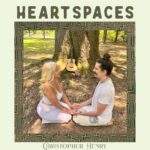
Connect to Christopher Henry on Facebook
Discover new music on Atwood Magazine
© courtesy of the artist
:: Stream Christopher Henry ::

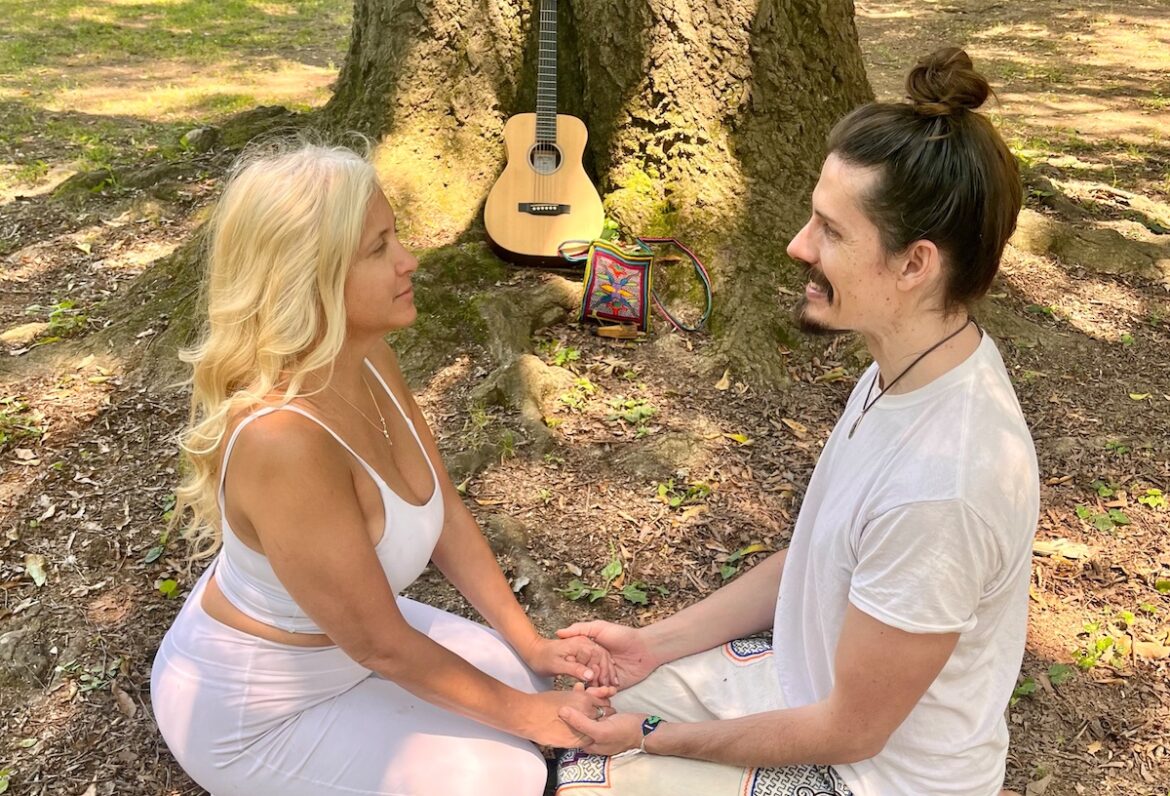
 © courtesy of the artist
© courtesy of the artist
